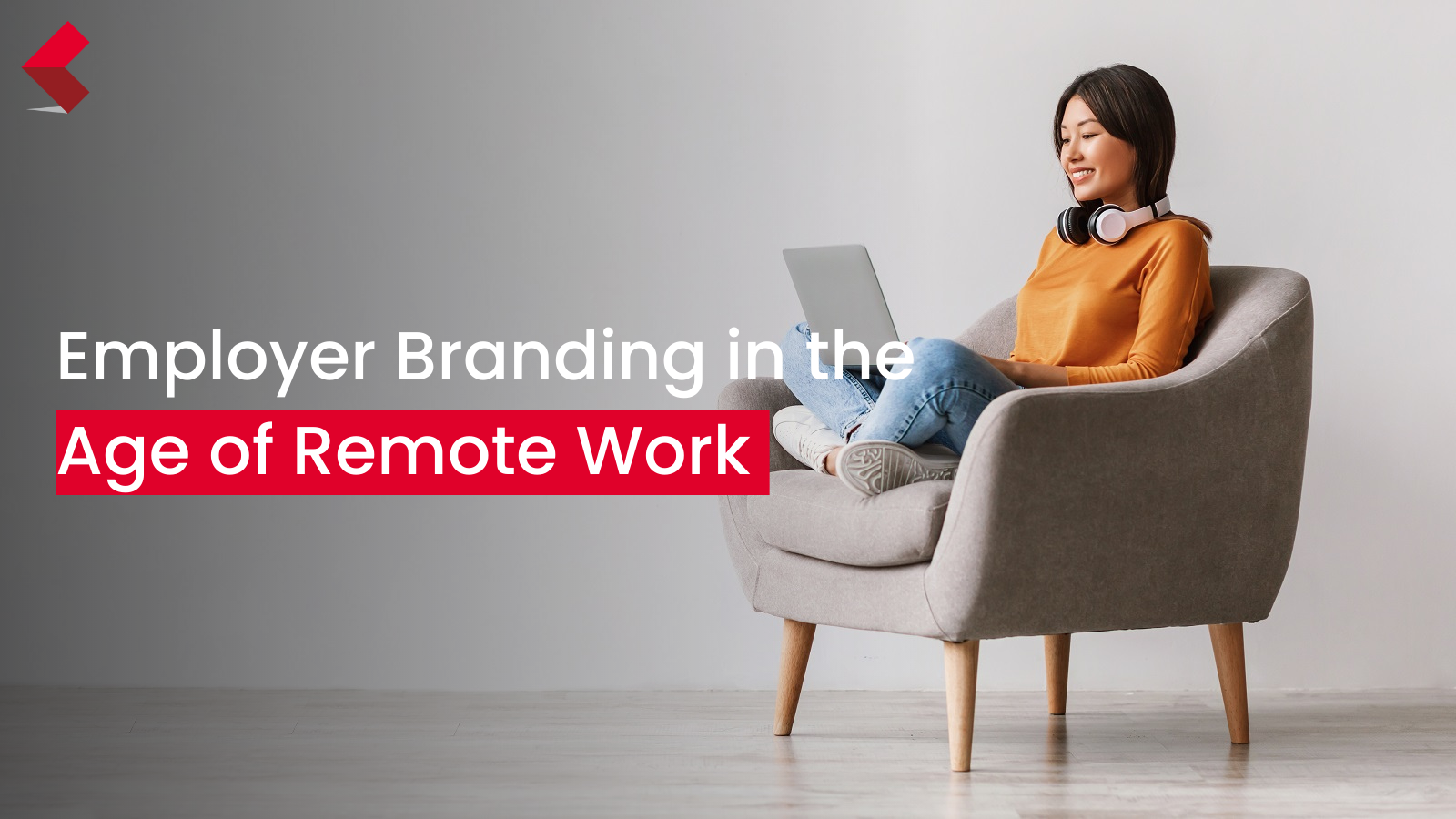Are your employees happy and able to maintain work-life balance when remote? Is your company cultivating a healthy company culture?
Employers should reflect on their company’s current state to figure out whether they are going in the right direction. But how can we make it possible in an era where employees are working remotely and want to stay remote? Moreover, choosing when to work remotely and when to work from the office greatly affects employer branding.
While hiring was booming before, the remote work concept stepped on the scene, and the idea of an employer brand has now taken on new meaning. Universally, the expectations and priorities of companies, employees, and candidates have different outlooks. Yet, despite the challenges posed by the changing landscape, businesses have soldiered on to adapt to the changing times.
In this blog post, get familiar with some of the challenges of employer branding in a remote work environment and how to adapt your strategy to the new reality. We will also provide tips on creating a strong remote work culture and using technology to enhance your employer branding efforts.
Following these tips ensures that your employer brand remains strong even in a remote work environment.
Must Read: Top 9 Employee Perks and Benefits for Remote Workers
What is Remote Employer Branding?
Remote employer brand is about the position of your remote employees in the company culture and what you offer to them. It’s an opportunity to explain why you are better than other employers and describe your EVP.
As a responsible employer, you must know how to create and communicate a compelling remote employer brand to attract top talent.
Steps to Help You Achieve Remote Employer Branding Goals
- Define your remote culture
The first and most crucial step involves defining the set of values, behaviours, and expectations to outline how your remote employees work. Your definition of remote culture must align with the overall organisational culture and mention the challenges & opportunities of working remotely.
It must talk about how you intend to incorporate collaboration, trust, and communication into your remote culture.
- Develop remote EVP
Craft your remote employee value proposition (EVP) that entails what you have to offer to the employees. Basically, you can provide EVP to the employees in exchange for their experience & contribution. Make sure to highlight its USPs, such as company culture, work-life balance, learning & development opportunities, and rewards & recognition.
Make your EVP stand out by mitigating the challenges of remote work and addressing them with your offerings.
- Become storytellers
Nowadays, the audience is more interested in knowing the backstage stories. Therefore, have your remote employees, managers, and leaders shed light on their experiences, achievements, and growth. Showcasing employee stories is an effective way to connect with people.
To bring your employees forward, you can explore various mediums, such as blogs, podcasts, social media, or testimonials.
- Manage your remote career site
Every organisation has a platform where it showcases its culture and employer branding to the potential candidates. The stage involves optimising your remote career site— making it user-friendly, SEO-friendly, and highly responsive. Your career site must also reflect your culture, EVP, remote roles & responsibilities, work-life balance, and the hiring process.
You can have dedicated resources to work on the career site to bring suitable candidates by placing call-to-action buttons or contact details.
Must Read: The Evolving Role of HR: Creating the Best WFH & Hybrid Work Environment
- Nurture your remote talent pool
The next step is to engage your remote talent pool, which consists of qualified and competent candidates who potentially fit your roles. There are various sources to reach them, including social media, referrals, virtual events, email campaigns, and podcasts.
Involve your existing employees and turn them into your brand ambassadors to earn employee referrals.
- Use technology to your advantage
Technology can be a great way to enhance your employer branding efforts in a remote work environment. There are many technology tools that can help you connect with employees, create a sense of community, and share company news and events. For example, you can use video conferencing, instant messaging, and social media to stay in touch with employees.
- Track results
Last but not least, measure and improve your employer branding and EVP. If you cannot measure what you manage, there is no point in undertaking those activities. To check the effectiveness of your efforts, you need to collect and analyse data. For further assistance, there are various tools like candidate surveys, employee surveys, social media analytics, hiring metrics, and more.
Measuring the success of your employer branding efforts in a remote work environment.
It is important to measure the success of your employer branding efforts in a remote work environment. This will help you see what is working and what is not. There are a few ways to measure the success of your employer branding efforts, such as:
- Surveying employees – You can survey employees to get their feedback on your company culture, benefits, and opportunities for professional development.
- Tracking your website traffic – You can track the number of visitors to your website and the pages they visit. This will give you an idea of how people are finding out about your company.
- Analyzing social media engagement – You can analyze the engagement on your social media pages. This will give you an idea of how people are interacting with your company.
Do not forget! Analysing your current workforce’s feedback can help you identify the strengths and weaknesses of your remote employer branding strategy and, thus, adapt accordingly to reach your goals.
Closing Comments
The ‘new normal’ still makes organisations suffer, owing to the lack of the right resources and strategies to manage remote work. But nurturing remote employer brands is the need of the hour, and organisations also need to develop extra human bonds with remote teams. They can— by inviting teams over virtual coffee breaks or having them chat whenever they feel like it. Still, this isn’t enough for you to create a strong employer brand in the era of remote work, and you must go outward in your approach to succeed.
If you haven’t begun to assess your remote employer brand, now is the right time to start. Your current and future workforce will thank you for it.








